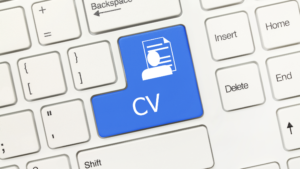AI is showing up everywhere these days, even in places we never expected, like career coaching. Instead of paying for a human coach, many people now try tools that promise to help with resume writing or even personalised career guidance.
But here’s the big question: can you really trust these tools? Are they reliable, or do they carry hidden biases that could advantage some individuals while disadvantaging others?
This question matters because careers are life-changing. If AI advice is tilted in one direction, say, favouring certain schools, genders, or backgrounds, it can quietly lock people out of opportunities. Research has already shown that AI hiring systems can reflect biases found in the data they’re trained on. That means the same problems we’ve always had in hiring could sneak into the new “AI career coach” world if we don’t pay attention.
At the same time, some platforms are working hard to make their tools fair and more reliable. For example, BetterUp Grow has mixed AI with human coaches to reduce mistakes. And newer solutions like Anutio are openly addressing issues like explainability and transparency, so users know why they’re getting the advice they see.
So, what does bias mean in AI career coaching, and what does reliability look like?
What Does “Bias” Mean in AI Career Coaching?
When we talk about “bias,” we’re basically asking if the system treats everyone fairly, or does it lean in favour of some people over others? In AI career tools, bias often originates from the data on which the system is trained. For example, if an algorithm was trained mostly on resumes from men in tech, it might give women or non-tech professionals weaker suggestions.
Here are some common types of bias we’ve seen in AI tools:
- Gender and race bias – AI hiring tools can sometimes favour men over women or give different weight to ethnic-sounding names.
- Age bias – Older workers may be overlooked if the system assumes career changes are only for younger people.
- Cultural bias – Tools built for U.S. markets might ignore career paths in Nigeria, Canada, or other regions.
- Data bias – If the training data is narrow, the tool will give narrow advice.
In short, bias is when AI unintentionally continues the unfair patterns we already see in the workplace.
What Does “Reliable” Mean in AI Career Coaching?
Reliability is the opposite of bias. It’s about giving advice that is consistent, transparent, and useful. A reliable AI career tool doesn’t just spit out random suggestions; it explains why it made those suggestions and helps you see a clear path forward.
Reliable tools usually show three things:
- Transparency – They tell you why they recommended a certain career path. (For example, “We matched you with this role because you have 3 years of marketing plus 2 years of teaching experience.”)
- Consistency – They give similar answers to similar people, instead of jumping around.
- Proof of success – Platforms like Careerflow.ai highlight their user numbers (600k+) to show the advice has worked for many.
When reliability and bias are both handled well, you end up with tools that actually help instead of hurt. That’s the standard Anutio is trying to set by combining explainable AI with human oversight, so career advice is both fair and dependable.
Where AI Works Well & Where It Falls Short
AI career coaching isn’t all bad or all good; it has clear strengths, but also important gaps.
Where AI shines
- Speed and accessibility – AI can quickly review a resume or suggest career paths in seconds. Tools like Rezi and Careerflow help job seekers make professional resumes faster than ever.
- Personalisation at scale – Platforms like BetterUp Grow and Anutio combine human and AI support to give tailored coaching to employees at large companies.
- Cost-effectiveness – Traditional coaching is expensive, but AI tools make career advice more affordable for students and job seekers.
Where AI struggles
- Understanding human context – AI can miss the deeper “why” behind a career pivot, like why a teacher might want to move into product management.
- Transferable skills – Many systems still focus too much on technical job history. Few really highlight how nonprofit or volunteer experience can transfer to formal jobs.
- Cultural blind spots – AI trained in U.S. or European job markets may not reflect realities in Nigeria, Canada, or other regions. Preparing workers globally requires understanding local needs.
- Bias risks – If unchecked, AI continues to recommend patterns that favour certain groups over others.
So yes, AI is great for giving people a starting point, but it can’t fully replace the nuance of a human coach, at least not yet.
How Anutio Ensures Fairness & Reliability
This is exactly where Anutio is different. While many platforms focus only on resumes and algorithms, Anutio was designed to blend fairness, transparency, and human oversight right from the start.
Here’s how Anutio does it:
- Explainable AI – Instead of leaving users in the dark, Anutio shows how it weighs skills, experiences, and goals. This kind of explainability builds trust and avoids “black box” advice.
- Cross-border adaptability – Whether you’re a student in Nigeria or an immigrant in Canada, Anutio adapts to regional realities, filling a gap left by most global tools.
- Human-in-the-loop checks – AI suggestions are paired with human oversight, ensuring people don’t get locked into one-size-fits-all advice.
- Privacy-first approach – Unlike some tools that hide data use in fine print, Anutio commits to being upfront and compliant with regional standards. (For example, Canada follows PIPEDA rules, while Nigeria enforces NDPR).
- Community and partnerships – By working with networks like youth empowerment groups, Anutio ensures real-world feedback keeps shaping the AI.
How You Can Test If a Career Coaching AI Is Biased
You don’t need to be a tech expert to figure out if an AI career coach is fair or not. Here’s a quick checklist you can use before trusting any platform:
- Do they explain their advice?
Reliable tools should tell you why they gave you certain career suggestions. If it feels like a mystery box, that’s a red flag. As Forbes explains, explainable AI is key to trust. - Do they show real results?
Look for platforms that publish case studies, like how many users found jobs. For example, BetterUp highlights outcomes from companies that use its coaching model. - Do they consider your background?
A good platform adapts to culture and location. The World Economic Forum points out that AI needs to reflect local labor markets, not just U.S. or European data. - Do they have human oversight?
Tools with a “human-in-the-loop” setup are safer because people can catch mistakes AI might miss. This is a practice recommended in OECD’s AI principles. - How do they handle your data?
Privacy matters. Check if the platform follows standards like Canada’s PIPEDA or Nigeria’s NDPR. If you can’t find a clear statement, that’s another warning sign.
By running through this checklist, you can protect yourself from relying on biased or unreliable career advice.
What to Watch Out For – The Risks
Even with all the benefits, AI career coaching isn’t risk-free. Here are some traps to avoid:
- Over-reliance on AI
If you follow AI blindly, you may miss career options that don’t fit neatly into its database. As MIT Technology Review notes, AI tools can sometimes reinforce narrow career patterns instead of opening new doors. - Generic advice
Many free AI tools give cookie-cutter answers. They might suggest the same job paths for thousands of people without recognising your unique mix of skills. - Data misuse
Some platforms quietly collect more personal information than they should. - Cultural mismatch
A tool built for U.S. job seekers might recommend roles or industries that don’t even exist in Nigeria, or ignore immigrant realities in Canada. That makes it unreliable for people outside those “default” systems. - False confidence
AI sounds confident even when it’s wrong. Without transparency or human review, it’s easy to mistake confidence for accuracy.
This is why platforms like Anutio are taking extra care to address bias and reliability, combining explainable AI, human oversight, and regional sensitivity, so that career advice feels trustworthy, useful, and safe.
Frequently Asked Questions (FAQ)
1. Can AI replace human career coaches?
Not yet. AI can give quick answers and help with tasks like resumes, but it struggles with emotional intelligence and context. Experts at SHRM point out that humans are still needed to catch subtle things AI misses. The best option is a mix — AI for speed, humans for nuance.
2. Does AI favour certain groups, like men over women?
Sadly, yes. Multiple studies, including one from MIT Technology Review, show that AI tools can reflect biases from their training data. That’s why transparency and oversight are so important.
3. Is AI trustworthy in countries like Nigeria and Canada?
It depends. Many AI career platforms are built for U.S. or European job markets, so they can miss local realities. Anutio is tackling this gap by adapting advice for Nigeria and Canada specifically.
4. How often should AI tools be audited?
Experts at OECD recommend regular audits to check fairness and accuracy. Without ongoing checks, bias can creep back in as markets and data evolve.
5. Is my personal data safe when using AI career tools?
It depends on the platform. Some tools hide vague policies in the fine print. Reliable platforms openly follow data laws like Canada’s PIPEDA or Nigeria’s NDPR. If you don’t see a clear privacy policy, that’s a red flag.
Is AI career coaching biased or reliable?
The answer to this is that it can be both. Many tools carry hidden biases because they learn from flawed data, while others don’t explain their advice at all. But when designed carefully, with transparency, human checks, and local context, AI can change the career development game.
This is exactly why Anutio was created. By combining explainable AI, regional adaptability, and real human oversight, Anutio helps students, professionals, and immigrants get fair and reliable career guidance in both Nigeria and Canada.
AI tools are shaping the future of work; the safest bet is to choose platforms that are upfront, ethical, and proven. And that’s where Anutio stands out.
To learn more, check out our Complete Guide to AI Career Development in 2025






